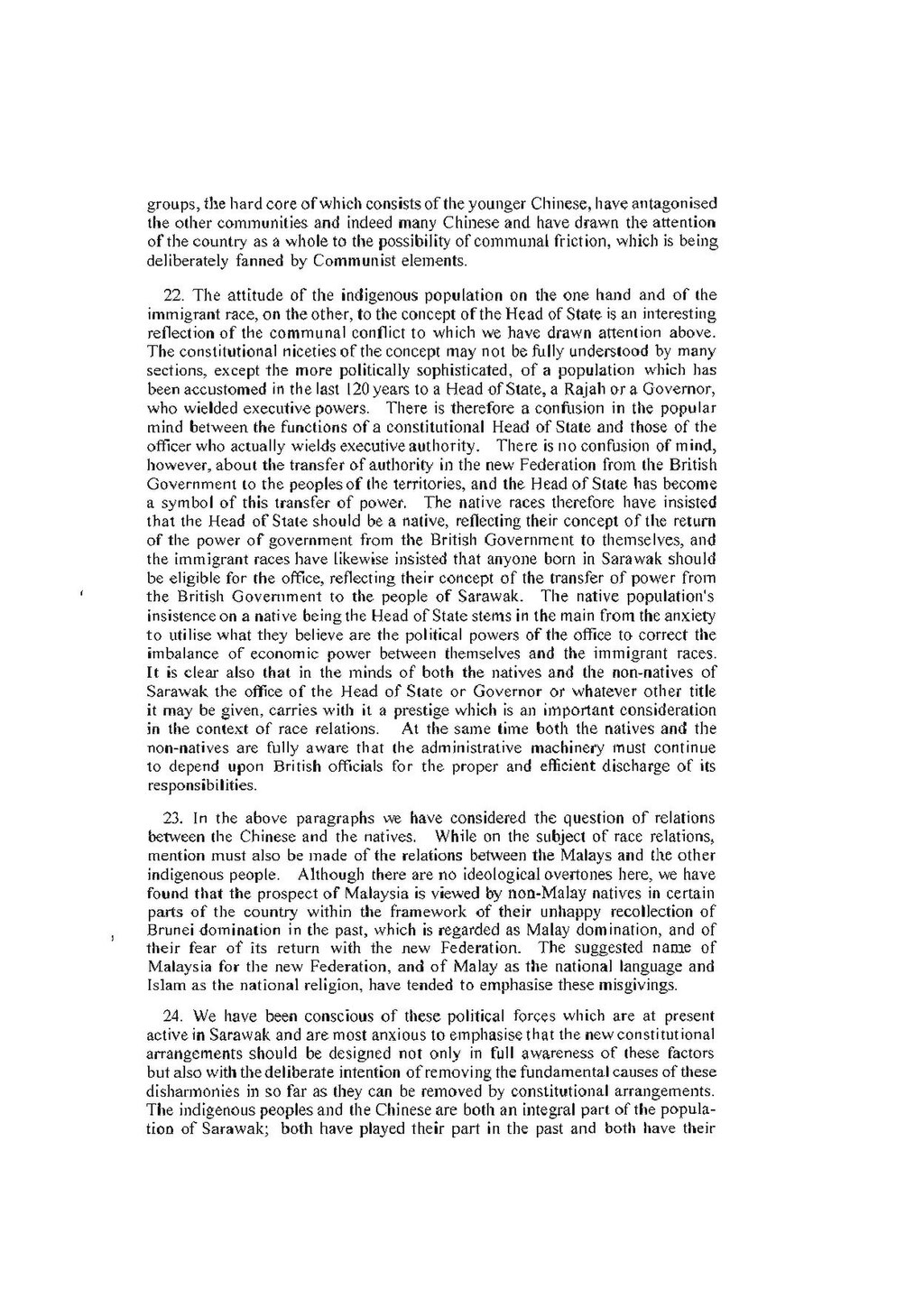groups, the hard core of which consists of the younger Chinese, have antagonised the other communities and indeed many Chinese and have drawn the attention of the country as a whole to the possibility of communal friction, which is being deliberately fanned by Communist elements.
22. The attitude of the indigenous population on the one hand and of the immigration race, on the other, to the concept of the Head of State is an interesting reflection of the communal conflict to which we have drawn attention above. The constitutional niceties of the concept may not be fully understood by many sections, except the more politically sophisticated, of a population which has been accustomed in the last l20 years to a Head of State, a Rajah or a Governor, who wielded executive powers. There is therefore a confusion in the popular mind between the functions of a constitutional Head of State and those of the officer who actually wields executive authority. There is no confusion of mind, however, about the transfer of authority in the new Federation from the British Government to the peoples of the territories, and the Head of State has become a symbol of this transfer of power. The native races therefore have insisted that the Head of State should be a native, reflecting their concept of the return of the power of government from the British Government to themselves, and the immigrant races have likewise insisted that anyone born in Sarawak should be eligible for the office, reflecting their concept of the transfer of power from the British Government to the people of Sarawak. The native population's insistence on a native being the Head of State stems in the main from the anxiety to utilise what they believe are the political powers of the office to correct the imbalance of economic power between themselves and the immigrant races. It is clear also that in the minds of both the natives and the non-natives of Sarawak the office of the Head of State or Governor or whatever other title it may be given, carries with it a prestige which is an important consideration in the context of race relations. At the same time both the natives and the non-natives are fully aware that the administrative machinery must continue to depend upon British officials for the proper and efficient discharge of its responsibilities.
23. In the above paragraphs we have considered the question of relations between the Chinese and the natives. While on the subject of race relations, mention must also be made of the relations between the Malays and the other indigenous people. Although there are no ideological overtones here, we have found that the prospect of Malaysia is viewed by non-Malay natives in certain parts of the country within the framework of their unhappy recollection of Brunei domination in the past, which is regarded as Malay domination, and of their fear of its return with the new Federation. The suggested name of Malaysia for the new Federation, and of Malay as the national language and Islam as the national religion have tended to emphasise these misgivings.
24. We have been conscious of these political forces which are at present active in Sarawak and are most anxious to emphasise that the new constitutional arrangements should be designed not only in full awareness of these factors but also with the deliberate intention of removing the fundamental causes of these disharmonies in so far as they can be removed by constitutional arrangements. The indigenous peoples and the Chinese are both an integral part of the population of Sarawak; both have played their part in the past and both have their
